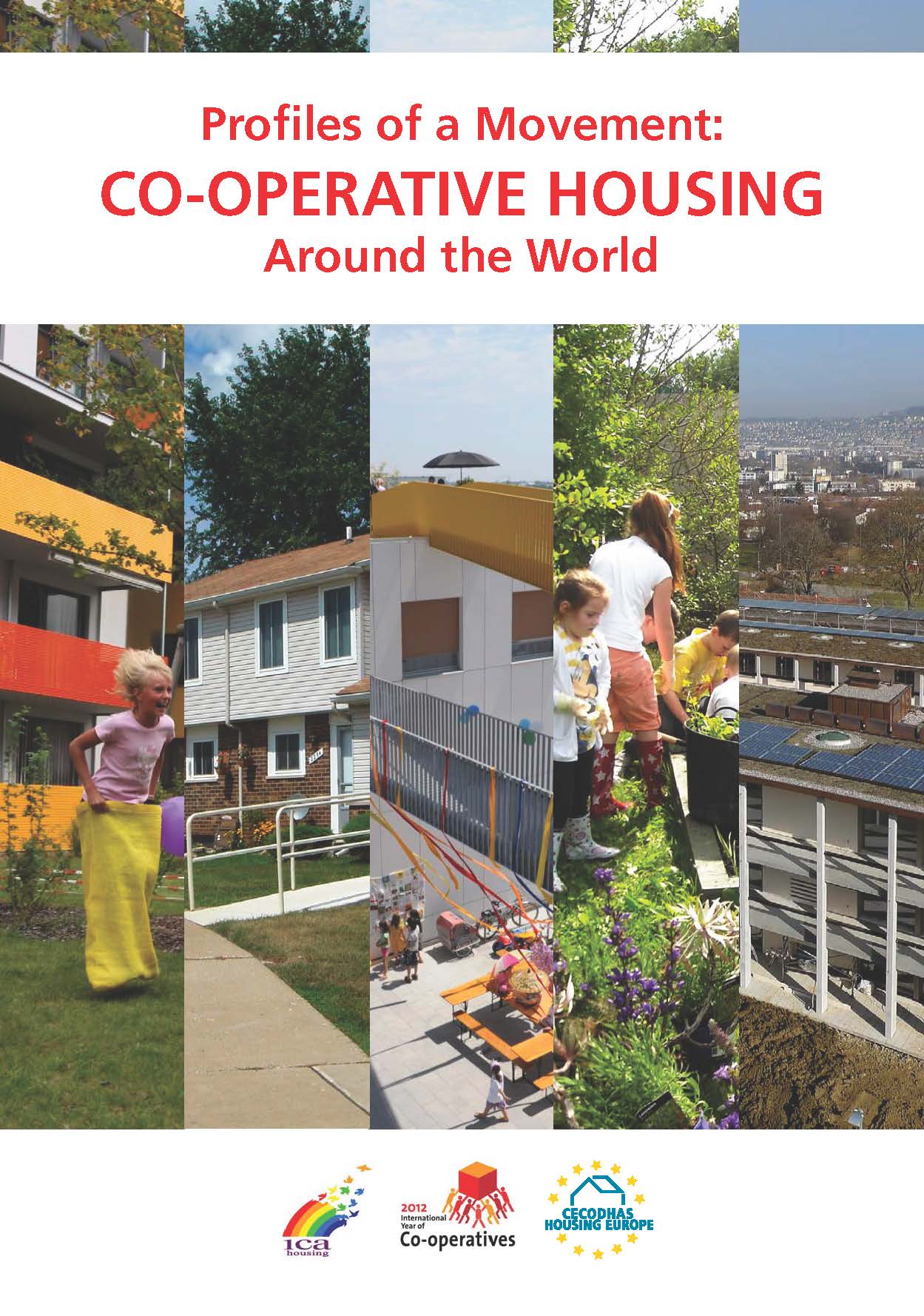
Introduction:
“Dear Reader,
2012 is an auspicious and significant year for the international co-operative movement. Declared by the United Nations as the International Year of Co-operatives 2012 (IYC 2012 www.2012.coop) it is a unique opportunity for us to show the general public, our members and employees the benefit of co-operatives as highly successful business enterprises that are socially responsible and care about people and the planet. We want to show that, globally, co-operatives as a form of democratic, people centred, business enterprise are highly successful.
Although co-operative housing is widespread and has an impact on the quality of life of millions of people, our housing sector is still relatively little-known. This joint report represents a first effort to present the history and the current realities of co-operative housing around the world and to achieve our key task of communicating more effectively the work of our members.
A housing co-operative is a housing business that is a consumer co-operative mutually owned by its members, which complies with the International Co-operative Alliance’s (ICA) Statement of Co-operative Identity and operates in accordance with the ICA’s Co-operative Principles and Values. There are different co-operative housing models in different countries, but what characterises housing co-operatives compared to other housing providers is that they are jointly owned and democratically controlled by their members, according to the principle of “one person, one vote”. This has clear implications for the way they operate compared to other actors on the housing market.
Co-operatives benefit not only their members but also the wider public interest.
The
co-operative housing movement has a long history. The first independent
housing co-operatives were formed in the mid-19th century, when Viktor
Aimé Huber initiated the construction of several dwellings in Berlin.
Many co-operatives which are over 100 years old still exist today and
are increasingly widespread in Europe and beyond.
In some countries,
co-operative housing has been historically, and still remains, an
important part of the housing market. For example, housing co-operatives
manage over 2,5 million dwellings in Poland, approximately 20% of the
total housing stock in the country, 17% in the Czech Republic and Sweden
and 15% in Norway. In many others, such as Canada and the United
Kingdom the co-operative housing sector is relatively small but is an
exemplar of the benefits which flow from resident-member control of
housing and the neighbourhood.
On average, 10% of Europeans live in
housing co-operatives. They show that living in a housing co-operative
provides many advantages in terms of economic, social and environmental
sustainability. Housing co-operatives often manage to provide housing
at costs that are below the price of a similar home in the open housing
market.
The
reason for this is that the prime objective of housing co-operatives is
to provide good quality and affordable housing in the interests of
their members, and not to maximise profit for developers or
shareholders. At the same time, real estate owned by housing
co-operatives or associations is less subject to speculation and
represents a long-term investment, which helps keep rents and prices for
co-operative housing at relatively low levels. Therefore co-operative
housing is important in maintaining more varied and balanced housing
markets, and contributes to price stability and affordability…”
The publication,
one of our IYC 2012 project, includes the co-operative housing profile
of 22 countries. It was made possible due to the great collaboration
received from the member organisations.
As indicated in the introduction of the publication: “Although
co-operative housing is widespread and has an impact on the quality of
life of millions of people, our housing sector is still relatively
little-known. This joint report represents a first effort to present the
history and the current realities of co-operative housing around the
world and to achieve our key task of communicating more effectively the
work of our members”.
The publication is free in PDF format or digital.
We invite you to share the publication as widely as possible. If you
wish to purchase printed copies, please contact Céline Carrière at CCarriere@chaseo.org. Cost of the publication is £16.00 + mailing